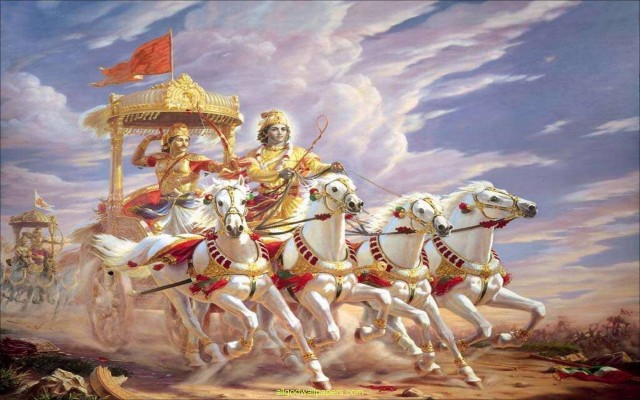
The Management Thought has seen a major breakthrough in the previous century. Be it Fayol’s principles of administrative management or Taylor’s principles of scientific management; there have been new discoveries of leadership styles and authorial hierarchy. But the ways of management today were not such in the earlier times. The modern Management Thought has evolved over the centuries all around the world, varying immensely with every revolution our society had witnessed. The great pharaohs of Egypt would not have been able to build those huge pyramids had there been no proper division of work and fuller utilization of the resources. Ancient civilizations would have demolished had there not been a proper centralization and decentralization of authority and responsibility.
One of the earliest theories of management is considered to be originated by an Italian scholar of the Renaissance period in 1513, known as Nicolo Machiavelli. Machiavellianism basically means the use of cunning practice in the general conduct of a work. In the business sense, a Machiavellian manager is the one who thinks that goals ac be achieved only by being tough, manipulative, dictatorial, or paternalistic as the situation requires. Machiavelli argued that a leader should be a cruel and devious one. According to him “A man who wishes to make a profession of goodness in everything must necessarily come to grief among so many who are not good. Therefore it is necessary for a ruler, who wishes to maintain himself, must learn how not to be good, and to use this knowledge (or, not use it), according to the necessity of the case”.
Many feel that the Machiavelli’ principle do not have much scope in today’s nicer and gentler world, but it is a fact that however devious his principles may sound to the moral brigade but a careful reading of his ideas would show the techniques to forge a humane and stable government. Many may think Machiavelli to be scheming but the fact is that Machiavelli was motivated in his philosophy and had an underlying concern for the good of the people through stability in government. His ideas continue to be applicable in the modern management even after half a millennium later.

The Mahabharata, the most important epic in the Hindu mythology, is considered to be a teacher to all the Indians about the path to Dharma. But the Mahabharata teaches us a lot about other things as well. One such thing is the art of proper management. The Mahabharata is the story of the battle between the Pandavas and the Kauravas, and the reasons which led to this crusade. It is not only the story of violence but also a story of love, sacrifices, camaraderie and dharma. The Mahabharata teaches us how a strategy should be formed, how maintaining diplomatic relationships must be maintained with others and many such things which are essential in the modern business world.
For example, it teaches us that Little Knowledge is a dangerous thing. Only Arjun and Drona knew how to crack the Chakravyuha – an invincible formation which is deadly enough to finish the war in one day. Abhimanyu learned to crack Chakravyuha while in Subhadra’s womb but he didn’t know how to get out of it. As result he was killed inside the Chakravyuha, not being able to get out of it. It teaches us that one should be careful while he practices his application of knowledge in real life. Also, one should not blindly trust his resources as he never knows when they will fail.

Many articles had been written about the relevance of the Mahabharata in the modern management theory in the past. Articles about the development of management thought from Machiavellianism are also present. But what I want to achieve is to write an article that combines the pertinence of these two concepts in the present managerial situation. Despite these two being diametrically opposites, there is the presence of both the teachings of the Mahabharata and Machiavellianism in the present situation of the business world.
1. Human Resources:

Machiavelli believed that only those who believe in the righteousness of the task and the grandness of the leader should be hired, people working for money and reputation will leave as soon as they will get it somewhere else. Similarly in the Mahabharata too, Yudhishthira made allies with those who believed in his righteousness of going to war. Krishna too joined his army, as he knew that the Pandavas were doing the best thing. In fact it is Krishna himself who makes the Pandavas think the Machiavellian way, or perhaps it was Machiavelli who got inspired from Krishna’s teaching to the Pandavas. Similarly in the present situation, the selection of employees is very critical for the success and growth of the companies. Today, companies are hiring dedicated workforce. They are not just luring them with money as they know that employees would leave as soon as they get better pay elsewhere.
2. Strategize:

Yudhishthira was an amazing strategist. On the first day of the war, he went over to the enemy side to seek blessings from Elders. In reality he made a covert deal with them, wherein all of them agreed to help him and unfolded the secrets of defeating them (Bheesma actually told Yudhishthira how to stop him on the 9th day). He took calculated risks. He made an offer to all the assembled people to change sides if they wanted to. He knew well of the lack of cohesiveness among the Kauravas. Yuyutsu, son of Dhritarashtra crossed over to the Pandavas. This exposed the weakness of the Kauravas for all to see. Machiavelli himself believed that in order to win over one’s competitors, one must be cunning and strategize properly. Just as Yudhishthira did, Machiavelli too supported manipulation as the key to succeed. Their ideas for achieving long-term political success and power translate extraordinarily well into the current business climate of intense global competition as well.
3. Camaraderie:

“The first opinion which one forms of a prince (CEO in this context) is by observing the men he has around him; and when they show that they are capable and faithful, then he (CEO) will be considered wise”. Machiavelli strongly believed that the companionship and the company in which one person delves strongly affect his public image. In the Mahabharata as well, as young lad, Duryodhana was not as arrogant but the thoughts that infiltrated in his mind were of his Uncle, Shakuni. Had he been in the company of the eternal Krishna and helped the Pandavas, he would not have faced defeat and might have flourished. Similarly in the present business scenario, companies are willing to engage in CSR activities and improve their public images.
The Mahabharata is an epic based on how an individual should live his life in the world, always walking on the path of Dharma. On the other hand, Machiavellian-ism is the theory of using deceitful practices in order to flourish in the world. Both these concepts are diametrically opposites of each other but still portray the same principle. Both of these are brilliantly intertwined in the present management scenario, where the practice of both deviousness and the Dharma is being followed together in the modern business management. Hence there has been the invention of an altogether kind of Management Thought, which comprises the lessons learn from the Mahabharata and the theories of Machiavelli.
After all,
“Adharma to Adharma is not Adharma, it is the real Dharma“.
By- Utkarsh Panwar


































